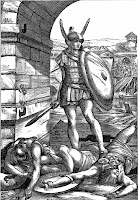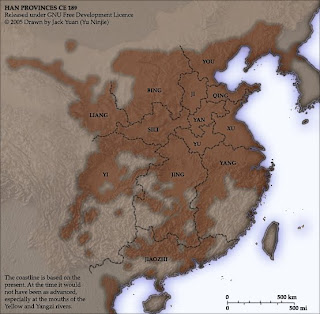Kim - Chapter One - 26
The first minutes of the movie; the first pages of the book.
The old man halted by Zam-Zammah and looked round till his eye fell on Kim. The inspiration of his pilgrimage had left him for awhile, and he felt old, forlorn, and very empty.
'Do not sit under that gun,' said the policeman loftily.
'Huh! Owl!' was Kim's retort on the lama's behalf. 'Sit under that gun if it please thee. When didst thou steal the milkwoman's slippers,
Dunnoo?'
That was an utterly unfounded charge sprung on the spur of the moment, but it silenced Dunnoo, who knew that Kim's clear yell could call up legions of bad bazaar boys if need arose.
'And whom didst thou worship within?' said Kim affably, squatting in the shade beside the lama.
'I worshipped none, child. I bowed before the Excellent Law.'
Continued next week. Tomorrow's installment from The Innocents Abroad by Mark Twain.
Kipling's novel of India and the British empire, published in 1900.
More information here:
| Literature Daily | More of this Series |








